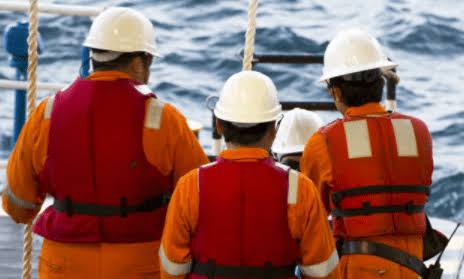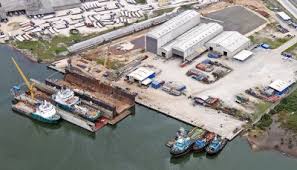
Vincent Toritseju
Lagos — The Chairman of the National Seafarers Welfare Board, NSWB, Nigeria, Otunba Kunle Folarin, has unveiled a template that could see about 5,000 Nigerian seafarers placed onboard ocean-going vessels annually, a development that could make Nigeria competitive in the global marine crew supply.
Folarin who is also the Chairman of Nigerian Ports Consultative Council (PCC), was speaking during an interview with Sweetcrudereport, stated that this could be attained if the Federal Government could develop an agreement that would see one Nigerian seafarer placed onboard each vessel that calls at the nation’s ports.
Noting that an average of 5,000 vessels visit the Nigerian ports annually, Otunba Folarin stated that 5,000 seafarers could be gainfully employed and positioned to earn foreign currency.
“Nigeria has the potential to attract over 5000 vessels a year calling at our port. Even if only 10 seafarers are manning each vessel and we have only one Nigerian on each of these vessels that are at Nigerian ports, it means 5,000 Nigerian seafarers will be employed.
“We need a policy that persuades and if not possible, enforces that all ships calling at Nigerian ports should employ at least one or two Nigerians when they call at the ports. That will address the employment issues for seafarers,” he argued.
COVID-19: NIMASA designates dockworkers & seafarers essential workers
While discussing the topic, “COVID-19: Addressing the Fears and Challenges of the Nigerian Seafarers”, Folarin said that the problems confronting Nigerian seafarers are beyond the pandemic.
He stated: “If we are talking of protection for the seafarers, we shouldn’t limit it to COVID-19. We should look at protection in terms of health, in terms of employment opportunities and protection in terms of being able to complete their training.
“The protection Nigerian seafarers will be looking for is opportunity for employment. When the seafarer is trained, he needs to be employed in order to practice his trade.”
To achieve seafarers’ employment, he suggested that Nigeria should go back to the shipping policy which was implemented in the 1980s and early 90s as the policy gave seafarers first right of employment particularly up to the position of Master.
“We need to enforce the employment of seafarers particularly on those ships that trade in Nigeria territorial waters. Cabotage for example has provisions for Manning. Ships in the Cabotage regime must employ Nigerians but that has not been the case. It has been the case of waivers. Waiver of that particular demand is detrimental to protecting the interest and opportunity of employment of seafarers,” he added.



